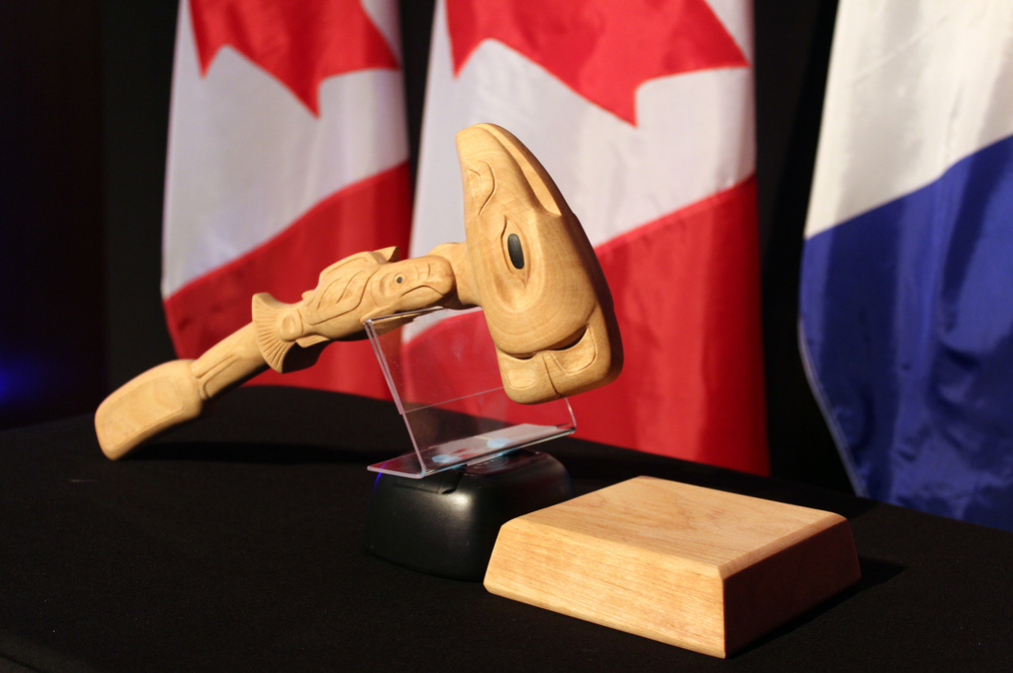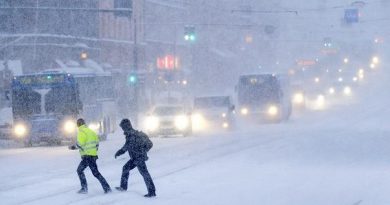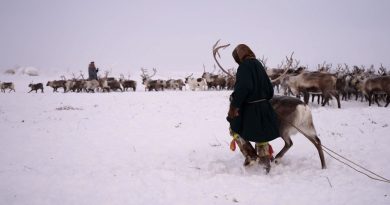The Arctic Council at 20 – View from Finland

The Arctic Council is celebrating its 20th anniversary this month.
The international forum also has Canadian roots and was established on September 19, 1996 when the world’s circumpolar nations signed the Ottawa Declaration, outlining the new forum’s focus: sustainable development and environmental protection.
To mark the anniversary, Eye on the Arctic is bringing you a series of interviews this month with northern experts from around the globe. We’re getting their perspectives on the Arctic Council’s successes, stumbles and the challenges ahead.
Today, we bring you our conversation with Timo Koivurova, director of the Arctic Centre at the University of Lapland in Finland.
He spoke to Eye on the Arctic this week from Rajshahi, Bangladesh.
Eye on the Arctic: How has the Arctic Council evolved as an organization since its inception?

Timo Koivurova: The big changes started with the Arctic Climate Impact Assessment released in 2004 and the awareness that climate change was rapidly transforming the region. Also there was a lot of media coverage about the geopolitics between Arctic Ocean mineral states as to who gets the resources first. There were these various types of pressures that got the Arctic into the limelight.
In my interpretation, that also pushed the Arctic Council to change: establishing the permanent secretariat, catalysing its different task forces legally binding treaties between the eight Arctic states, promoting different Arctic cooperation forms like the Arctic Economic Council and Arctic Coast Guard Forum. The Arctic Council needed to react in different ways to these different challenges and strengthen itself and show that the Arctic Council is the predominant forum of Arctic cooperation.
How well as the Arctic Council done responding to these various pressures?
I think it’s done surprisingly well. In 2007/2008, I was very skeptical of whether the Arctic Council could pull this through. Would the Arctic Ocean coastal states be the main forum for Arctic cooperation? But the Arctic Council has certainly been able to show with these treaties and large-scale scientific assessments, what the environmental challenges are. It’s also been able to influence international negotiation processes.
Military issues were shielded from its mandate from the very beginning which has been extremely important. There’s a very clear cold period in principle between Russia and the West but it hasn’t really spilled over to the Arctic. And one reason that I’d point out is that, in the Arctic Council, they can talk about the environment protection, sustainable development and all the common issues that are now expanding all the time. I think that’s certainly important in this cold period that we are facing at the moment.
What would you like to see the Arctic Council do more of or less of?
One thing the Arctic Council has to do, one day or another, is find a more stable funding mechanism. And somehow make it so all the projects that are being developed in the various working groups and task forces don’t overlap. That’s obvious for anyone who follows the Arctic Council’s work or is there as a participant. Someone could justifiably ask if it should somehow downscale. But at the moment, I would say it still say it’s very important because this work is done by all the Arctic states including Russia. Even after the annexation of Crimea and hostilities in eastern Ukraine, in the Arctic there is more and more happening in terms of cooperation. For me as a researcher, it’s a very interesting phenomenon.
Why should the world be paying more attention to the Arctic Council’s work?
- I think it’s doing pioneering work in terms of synthesising scientific work with these large-scale assessments. For instance, the reality of climate change. Think about those observers of the Arctic Council like China, etc. They come to these meetings and are exposed to the reality of Arctic climate change.
- The fact that the Indigenous Peoples are permanent participants in an international forum that has, as an outside group, big powerful states like China and Japan. It’s a very interesting governance experience and it has worked well. I’m not saying there’s nothing to correct about it. There should be more funding for the Indigenous People’s organizations to participate in the work of the Arctic Council. But the fact that the Council has this feature, I think it does make it a very legitimate body because the original inhabitants of the region are there.
The above Q&A has been edited and abridged.
For Eye on the Arctic’s extended conversation with Timo Koivurova, listen here:
Write to Eilís Quinn at eilis.quinn(at)cbc.ca
Related stories from around the North:
Canada: Arctic Council celebrates 20 years of northern cooperation, Eye on the Arctic
Norway: Arctic Council aims to boost business, The Independent Barents Observer
Russia: Russia invites Arctic Council on icebreaker tour, The Independent Barents Observer
Sweden: Arctic Council – From looking out to looking in, Blog by Mia Bennett, Cryopolitics
United States: Arctic Council – 20 years in a warming world, Deutsche Welle’s Iceblogger



